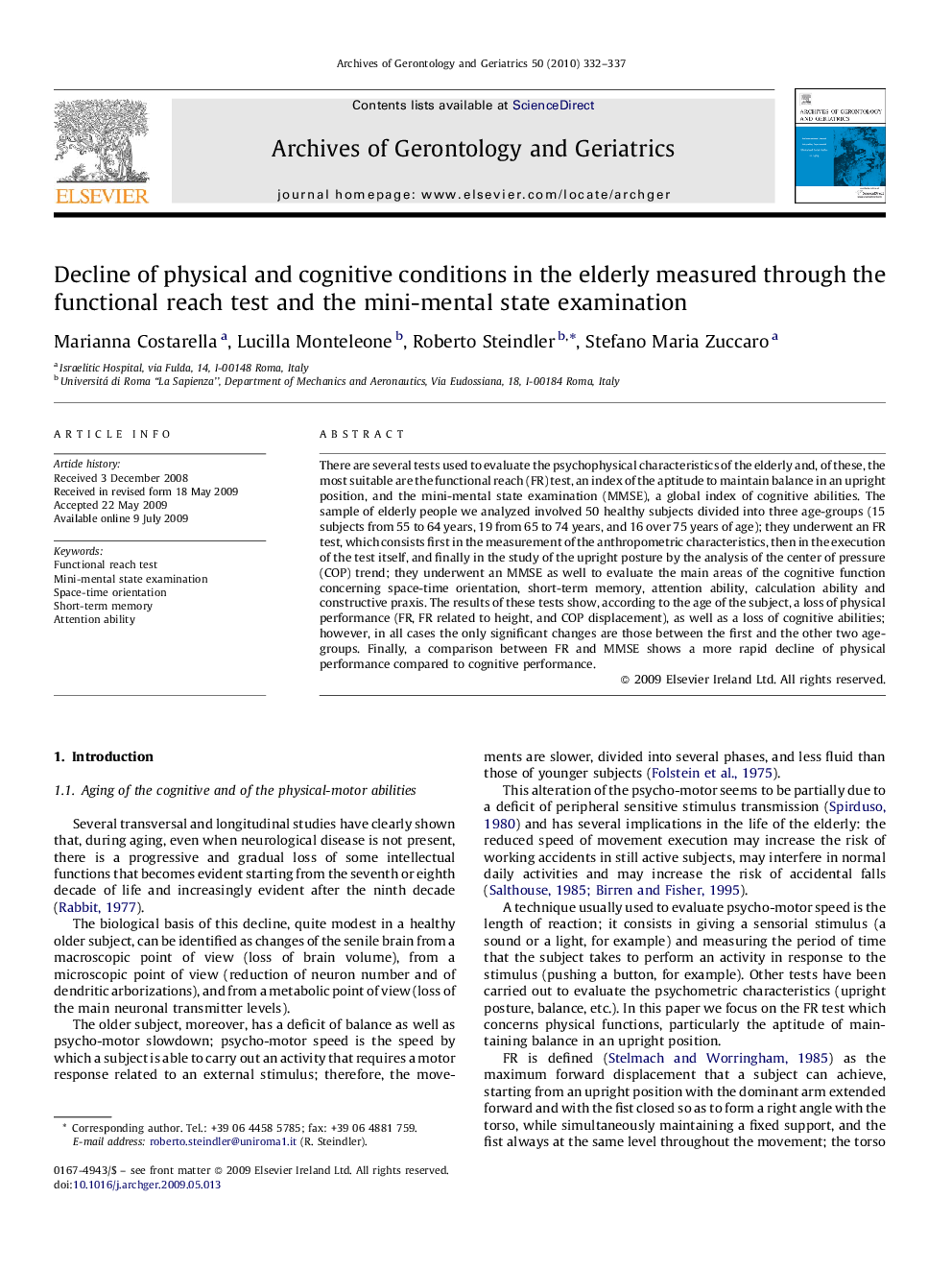| Article ID | Journal | Published Year | Pages | File Type |
|---|---|---|---|---|
| 1903365 | Archives of Gerontology and Geriatrics | 2010 | 6 Pages |
There are several tests used to evaluate the psychophysical characteristics of the elderly and, of these, the most suitable are the functional reach (FR) test, an index of the aptitude to maintain balance in an upright position, and the mini-mental state examination (MMSE), a global index of cognitive abilities. The sample of elderly people we analyzed involved 50 healthy subjects divided into three age-groups (15 subjects from 55 to 64 years, 19 from 65 to 74 years, and 16 over 75 years of age); they underwent an FR test, which consists first in the measurement of the anthropometric characteristics, then in the execution of the test itself, and finally in the study of the upright posture by the analysis of the center of pressure (COP) trend; they underwent an MMSE as well to evaluate the main areas of the cognitive function concerning space-time orientation, short-term memory, attention ability, calculation ability and constructive praxis. The results of these tests show, according to the age of the subject, a loss of physical performance (FR, FR related to height, and COP displacement), as well as a loss of cognitive abilities; however, in all cases the only significant changes are those between the first and the other two age-groups. Finally, a comparison between FR and MMSE shows a more rapid decline of physical performance compared to cognitive performance.
